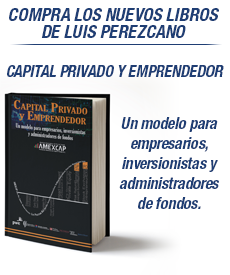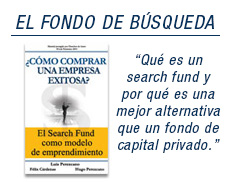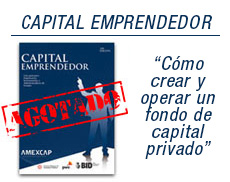
Myths of the War Against Drugs in Mexico
This entry was posted in Intereses Varios and tagged crime, drug related violence, drugs, legalization of drugs, México, violence, war against drugs. Bookmark the permalink.
Leer Drogas: Mitos y Realidades en español.
The debate on the legalization of drugs which is already quite active in the US, needs to start taking place in Mexico at the very top of the country’s political agenda. Santiago Roel, former technological entrepreneur and good friend has been involved in the analysis of security issues over the past years. Santiago is an out of the box thinker who has advised state governments in the implementation of practical solutions to reduce crime. Following is an article he wrote on the legalization of drugs in Mexico.
Drug addiction is a criminal problem.
False: illegal-drug use is a health problem that has been converted into a criminal problem since prohibition in 1972. Criminality is defined by the State.
Governments should prohibit illegal drug use.
Governments should protect citizens against harm by others. Prohibition has generated more harm to society than drug abuse; a health problem has been artificially converted into a criminal issue and in Mexico, it has now become a serious security issue.
All drug consumers are addicts.
False: about 80% are recreational users. Not all beer-drinkers are alcoholics.
The best public policy is to incarcerate drug addicts.
False: England, Switzerland, Portugal and other European countries treat drug addicts as citizens with an addiction problem, not criminals. Drug treatment programs are focused on helping addicts keep their job and their family life.
The best way to reduce drug use is by curtailing its offer.
False: This is what the prohibitionist policy has been trying to do for the past 38 years without success. Illegal drugs are cheaper, more available to high-school students and consumption has remained basically the same in the US.
Mexico is unable to help the US fight the war.
True: Mexico is loosing the war in its attempt to help the US Government curtail drug offer. More than 28,000 Mexican police, army and citizens have lost their lives to this war since 2006 with no benefit to anyone, except the drug prohibitionists.
Mexico could win this war.
False: Drug exports to the US amount to $30 billion a year, 3 times the Mexican defense budget. Mexican mafias freely purchase guns in the US market. So in essence, the Mexican mafias, are being fueled by the US market which is much more powerful than the Mexican government.
Who is winning the war?
The market, drug dealers, drug traffickers, arms dealers, jail contractors and administrators, the mafias, corrupt government officials on both sides of the border, and anyone who benefits directly or indirectly from prohibition.
Who is losing the war?
Everyone else: drug addicts, young schoolboys and girls, the poor neighborhoods, crime-related victims, the police, the Mexican government and the Mexican society.
Wars are won with technology.
False: Wars are won or lost with ideas. We are fighting the drug war with the wrong paradigms. Ghandi did not have better technology than the British Empire; he did have much better ideas.
Drug capo incarceration is a victory for the US or Mexican government.
False: The capo is incarcerated, not the drug business. The business remains healthy and capos are immediately replaced. Please re-read this one.
If we legalize or regularize drugs consumption will increase and we will end with more addicts.
Not necessarily true. This is the DEA’s argument but no substantial proof has been provided. Portugal decriminalized drug consumption in 2001 and drug use has decreased. This was the original intention. Money is spent to prevent and treat addicts instead of enforcing a criminal law.
Our kids will easily fall into drug abuse if we legalize or regularize drugs.
False. This is already happening. It is easier in high school to purchase illegal drugs than alcohol. The black market is extremely efficient in recruiting new customers.
Drug traffickers and drug dealers are responsible for drug use and abuse, they are the enemy.
False: Drug sellers are the suppliers of an illegal drug market. They are created by prohibition. Some argue violence is only part of the business, even so, violence follows its own irrational laws.
In Switzerland, some hard drugs like heroin are distributed by the government; no more business for drug dealers.
If your kid becomes hooked on drugs, would you rather have her reach to a drug dealer or a government agency?
Would you want your daughter to prostitute herself or steal in order to buy drugs? Would you want her driving around troublesome neighborhoods to purchase drugs?
Drugs are responsible for crime and violence.
False. Drug prohibition is. In Switzerland up to 75% of crime was reduced with regularization.
Legalization or regularization will stop all violence.
False. In Mexico, drug dealers have expanded into kidnapping, extortion and piracy among other crimes. But once the drug money flow is stopped the Mexican army and police would have much better chances of reducing crime back to the 1990’s rates.
Legalizing or regularizing is promoting.
False. It’s acceptance. No problem can be solved unless it is first accepted. This is what most European countries have realized. This is what AA does for alcoholics, it does not promote alcoholism it accepts it.
Legalizing or regularizing is immoral.
Morality does not help understand the problem. Also, morality can be argued in the opposite sense: Prohibition is immoral since it promotes young addicts, violence, corruption and mafia power.
Mexico is corrupt and ineffective in dealing with drugs.
False and true.
1) Mexicans have much lower use of illegal drugs. As percentage of the population, Americans consume 4 times more marihuana, 7 times more cocaine, 8 times more amphetamines and 100 times more ecstasy than Mexicans.
2) Mexican police is much weaker than US police in regard to drug money and violence. The Mexican government does not have the resources to fight this war.
Mexico should keep on with this war with the financial aid of the US.
Not really. Mexico should seriously reconsider fighting along the DEA.
1) Drug money is funneled into Mexico from the US.
2) Arms are freely purchased in the US to kill Mexicans and fight the Mexican army.
3) Drug consumption is mostly a US problem.
4) Violence and crime has radically increased since Mexico stepped up its strategy in 2006.
5) The war is lost in the US.
Mexico can and should follow its own interests in a more practical, economic, humane and viable policy, just like the European nations have done.
Send the Marines.
False. This is a “complex war” against a market. The enemy is hidden in our schools, shops and neighborhoods. The enemy is within authorities on both sides of the border. The enemy is our trying to control a complex system, which is -by definition- is uncontrollable. The market will prevail.
Mexico´s violence is its own problem.
False:
1) An unstable US-Mexico border or a failed Mexican State is an immense threat to the US.
2) The violence in Mexico is created mostly by prohibition in the US.
If Mexico legalizes or regularizes drugs, there will still be drug trafficking into the US.
True. If the US doesn’t address the issue, this would remain a US problem. Just as the US does nothing to stop arms and drug money into Mexico, Mexico would not do anything to stop drug exports into the US; to each, his own.
California, nevertheless, could lead a different approach both for Mexico and the US.
Marihuana legalization is a red herring.
False. Marihuana sales are as much as 60% of drug dealer’s sales.
Politicians are willing to innovate.
False. Unfortunately most politicians follow their own self- interests (public-image mostly) both in Mexico and the US. Unless the public demands a policy change there will be more deaths, violence and corruption on both countries. Until we see prohibition as more costly than legalization or regularization nothing will change.
We are fighting a war against drug dealers, Mexicans and drug addicts (and for Mexicans, a war against Americans).
False: We are fighting a war against our own paradigms, our own assumptions, which we have lived with for almost 40 years.
All of those in favor say yes and vilify our opposition.
False. It’s not a matter of winning arguments or disqualifying opposition, it’s a matter of finding a solution.
For more information go to The War on Drugs a Failed Paradigm.
Recommended reading: Why our Drug Laws have Failed by Judge Jim Gray.
I am no expert but I do have some experience with complex social systems and crime prevention. I also grew up in the sixties and seventies; a couple of my friends in Mexico smoked pot, most of my friends at Harvard Summer School smoked it freely. I tried it and decided it put me in a mellow mood, which was not fun. As a kid, my parents taught me how to drink alcohol the French way: one or two drinks are fine. I am a nicotine addict. A friend of mine lost his daughter to a drug dealer, she was found dead on a desert highway. Many close friends are leaving Mexico due to the violence created by this artificial war; they have been menaced in some way or another. Mexico is very close to becoming a failed state. I know we cannot control complex systems we can only help them auto-regulate themselves. In trying to create order with prohibition, we have created chaos.
Santiago Roel
29/August/2010
Artículos Relacionados
Actividad de Capital Privado en Mercados Emergentes 2011
EMPEA (Emerging Markets Private Equity Association) reportó recientemente sus [download id=”24″]. De acuerdo a la asociación 89 fondos levantaron 23 mil millones de dólares entre enero y junio de este año. La mayor parte del crecimiento es atribuible a fondos … Leer más
Ingredientes necesarios para un ecosistema de capital de riesgo
Dentro y fuera de los Estados Unidos, no hay déficit de académicos, economistas, gobiernos, o gremios que se dediquen a la tarea de descubrir cuáles son los elementos necesarios para imitar al ecosistema de capital de riesgo de los Estados … Leer más
Latinoamérica: Capital privado y emprendedor después de la crisis
En Las nuevas reglas del capital privado en mercados emergentes y en Índice de capital privado y capital emprendedor hablaba sobre la creciente importancia que están teniendo los mercados emergentes en el escenario de capital privado global. En este artículo, … Leer más












Comentarios
One Response to Myths of the War Against Drugs in Mexico